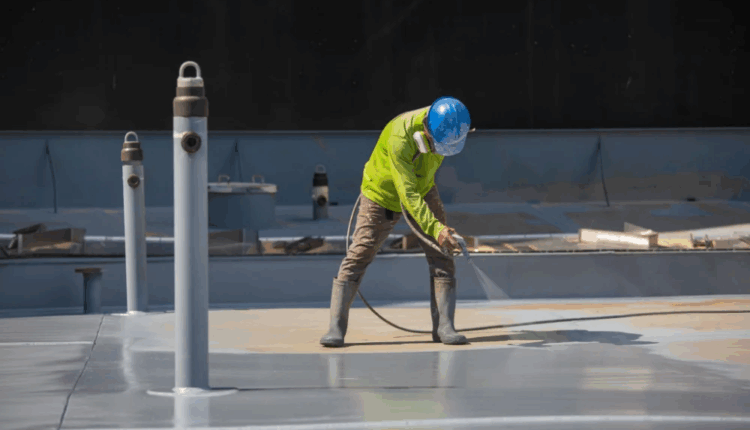How Commercial Roofing Coatings Can Extend the Life of Your Building’s Roof
The roof of a commercial building is one of its most vital components, protecting the structure and its contents from environmental elements. Over time, exposure to weather conditions such as sun, rain, wind, and temperature fluctuations can deteriorate roofing materials, leading to costly repairs or even premature roof replacement. One effective solution gaining popularity in the commercial sector is the application of commercial roofing coatings. These specialized coatings provide a protective layer that can significantly extend the lifespan of your building’s roof. This article explores how commercial roofing coatings work, their benefits, and why investing in them makes sound financial and structural sense.
Understanding Commercial Roofing Coatings
Commercial roofing coatings are liquid-applied materials designed to seal and protect existing roof surfaces. They come in various formulations, including acrylic, silicone, polyurethane, and asphalt-based coatings, each suited for different roofing types and environmental conditions. When applied, these coatings form a seamless, waterproof membrane that adheres tightly to the roof, filling minor cracks and imperfections.
The primary function of commercial roofing coatings is to enhance the roof’s resistance to damage caused by UV rays, moisture infiltration, thermal shock, and physical wear. Unlike traditional roofing materials that may degrade or crack over time, roofing coatings create a flexible yet durable barrier that maintains its protective properties across seasons and weather changes.
How Coatings Protect and Extend Roof Life
One of the main ways commercial roofing coatings extend roof life is by providing a reflective surface that reduces heat absorption. Many coatings have high solar reflectance, which lowers roof surface temperature and decreases thermal expansion and contraction. This temperature regulation minimizes stress on roofing materials, preventing premature aging and cracking.
Additionally, coatings serve as a waterproofing shield. Water infiltration is a leading cause of roof deterioration, causing rot, mold, and structural damage. By sealing seams, cracks, and punctures, roofing coatings prevent water penetration, preserving the integrity of the roof deck and insulation beneath.
Moreover, commercial roofing coatings protect against chemical exposure and pollutants that can erode roofing materials, especially in industrial or urban settings. This chemical resistance helps maintain the roof’s structural soundness over extended periods.
Cost-Effectiveness and Maintenance Benefits
Applying commercial roofing coatings is generally more cost-effective than full roof replacement. Since coatings can be applied directly over existing roofing materials, they reduce labor and material expenses associated with tear-off and installation. This makes them an attractive option for building owners looking to maximize their roofing budget.
Furthermore, coatings simplify maintenance by creating a uniform, easy-to-clean surface. They often require minimal upkeep and can be reapplied periodically to renew protection without disrupting building operations. This ease of maintenance prolongs the interval between costly repairs or replacements.
Environmental and Energy Efficiency Advantages
In addition to extending roof life, commercial roofing coatings contribute to sustainability efforts. By reflecting solar radiation, they reduce cooling loads inside the building, leading to lower energy consumption and utility costs. This energy efficiency aligns with green building standards and can contribute to certifications such as LEED.
Using coatings also reduces roofing waste sent to landfills since they eliminate the need for frequent roof replacement. This eco-friendly aspect is increasingly important for businesses committed to reducing their environmental footprint.
Conclusion
Commercial roofing coatings offer a practical, efficient way to protect and prolong the lifespan of commercial building roofs. By creating a durable, reflective, and waterproof barrier, these coatings safeguard roofing materials against weather damage, thermal stress, and chemical exposure. They provide significant cost savings compared to full roof replacement and support energy efficiency goals, making them an excellent investment for building owners seeking to preserve their property’s value and functionality. Consulting with a professional roofing contractor can help determine the most suitable coating type and application process tailored to your building’s specific needs, ensuring optimal protection and longevity.

